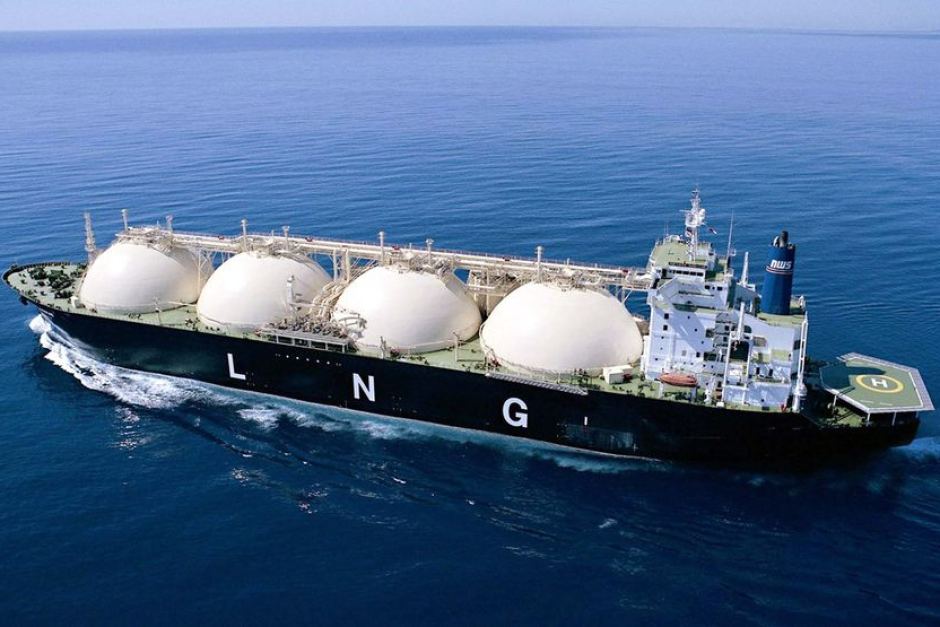The Russian-Ukrainian war has exacerbated global fears of a crisis in the liquefied natural gas market, of which Moscow is one of the most important players.
To overcome these concerns, Japan plans to boost its investments in LNG exploration projects, to stimulate development and boost fuel production in the country.
Today, Friday, Japanese Industry Minister Koichi Hagiuda said, “Investment in developing new liquefied natural gas fields at the global level has declined significantly, with countries in the world heading towards achieving carbon neutrality, despite the high demand, especially in Asia, even before the crisis.” Ukrainian”.
Buying Natural Gas
Many countries in the world are adopting an ambitious plan to reduce dependence on fossil fuels and expand renewable energy sources, in order to reduce greenhouse gas emissions and achieve carbon neutrality by 2050.
“The Russian invasion of Ukraine prompted the countries of the world to race to buy liquefied natural gas, which raised concerns about the stability of fuel supplies to Japan,” the Japanese Minister of Industry added, during a press conference.
He stressed that his country’s government needs to secure supplies of liquefied natural gas through cooperation with the private sector.
Japan intends to provide private sector companies with the necessary investments to expand liquefied natural gas projects, through the Japan National Oil, Gas and Minerals Corporation, with the aim of accelerating the production process.
The Japanese National Corporation provides capital to oil and gas companies, to mitigate the financial risks of exploration and production projects.
Kiyoshi Hagiuda said: “A meeting of energy ministers in the Group of Seven, in early March, recognized the importance of investments in the liquefied natural gas sector to ensure energy security.”
The Ukrainian crisis resulting from what Moscow described as a “special military operation” highlighted Japan’s role in the “Sakhalin-1” and “Sakhalin-2” energy projects in Russia, at a time when major Western oil companies decided to withdraw from the country, for its attack on Ukraine.
Many energy companies in the world announced that they would stop pumping any new investments in the Russian oil and gas sectors, including the British company BP, the Italian Eni, the American ExxonMobil, and the Anglo-Dutch Shell.
Energy Security Guarantee
The Japanese Minister of Industry stressed that his country will not exit from the two projects, because they are stable sources of long-term and low-cost energy, but will also work to reduce dependence on Russian energy by diversifying sources of supply.
Russia was the second largest supplier of thermal coal, and the third largest supplier of coke to Japan in 2021, and Moscow accounted for 3.6% of Japanese oil imports, 12.5% of thermal coal imports, and 8% of coke.
The Japanese Minister of Industry stressed that his country will not exit from the two projects, because they are stable sources of long-term and low-cost energy, but will also work to reduce dependence on Russian energy by diversifying sources of supply.
Russia was the second largest supplier of thermal coal, and the third largest supplier of coke to Japan in 2021, and Moscow accounted for 3.6% of Japanese oil imports, 12.5% of thermal coal imports, and 8% of coke.
According to Japanese Finance Ministry data, Russia supplied 4% of Japan’s total crude oil imports of 2.48 million barrels per day in 2021, with the Middle East providing 92% of the inflows to the Asian country.
Russia accounted for 9% of Japan’s total LNG imports of 74.32 million metric tons in 2021, and is the country’s fifth largest supplier.
Japan intends to take a set of measures to ensure energy security in countries poor with oil and gas resources, including urging producing countries to provide stable supplies of liquefied natural gas, and acquiring stakes in oil and gas exploration and production projects.
In a joint statement on April 7, the G7 leaders announced an acceleration of their efforts to reduce dependence on Russian energy sources, including phasing out Russian coal imports, banning them and limiting the import of Russian oil.
Source: XglobalMarkets


